Crispy Pan Seared Salmon
I have been preparing Pan Seared Salmon this way– crispy on the outside and buttery soft and flaky on the inside– since I was a culinary student more than twenty years ago. It was a top request with my personal chef clients. It is also a simple cooking technique I go to again and again for entertaining or just for a quick dinner in under 20 minutes. And I am sharing just how simple it is to prepare at home today.

Table of contents
Perfect Restaurant-Style Salmon
Whether it’s when I want a restaurant-quality main course to really wow guests or when I only have a few minutes to make a weeknight meal, I return to this simple pan-cooked salmon filet recipe. Like my Crispy Roasted Chicken Thigh Recipe, it is as much of a go-to recipe as it gets in my kitchen.
I learned how to cook salmon this way, a simple pan-fried technique when I was training in culinary school, and later perfected it as a line cook while working in restaurants. And now the secret is out: It is shockingly simple to make even at home!
Getting super crispy golden brown salmon only requires minimal ingredients (salt, black pepper, oil and salmon), a knife (to remove the salmon skin) and a hot frying pan. Once you try it once or twice you won’t even need the recipe anymore. It is arguably the best way to cook salmon and the easiest!
Squeeze on some lemon juice, or top with creamy dill sauce for salmon and it is the perfect building block to a healthy meal when paired with green beans, shaved brussels sprouts salad, roasted asparagus or pair with wild rice salad for a festive meal.
Pan Seared Salmon Ingredient Notes

- Salmon: You’ll want a nice big 1 1/2-pound boneless filet of center-cut salmon for this recipe. Here’s how to know which kind of salmon to buy. Make sure to remove the pin bones (use needle nose pliers for this)and cut the skin off (here’s a tutorial on how to remove salmon skin, or ask your butcher to do it for you.)
- Coarse Kosher Salt and Pepper: For cispy crust use coarse kosher salt. I like Diamond Crystal brand. It is lower in sodium than Morton kosher salt and easy to sprinkle. Read more about kosher salt here.
- High Heat Cooking Oil: You’ll need a cooking oil that can withstand high heat. I use avocado oil, organic canola oil or grapeseed oil for high-heat cooking. Do not use extra-virgin olive oil for high heat cooking.
Step-By-Step Instructions

Step 1: Heat Pan
Heat oil in a large cast-iron skillet over medium-high heat. Note we think a cast-iron skillet is best for cooking salmon. Do not use a non-stick skillet as these types of pans are not rated to cook at such high temperatures or make sure your nonstick skillet can reach temps over 400 degrees F.
Tip: When you cook salmon in a pan it is important to turn the fume hood on high. Cooking fish in a hot skillet always makes a bit of smoke!
Step 2: Season Salmon
Meanwhile, pat your salmon dry and sprinkle salt and pepper all over the salmon.
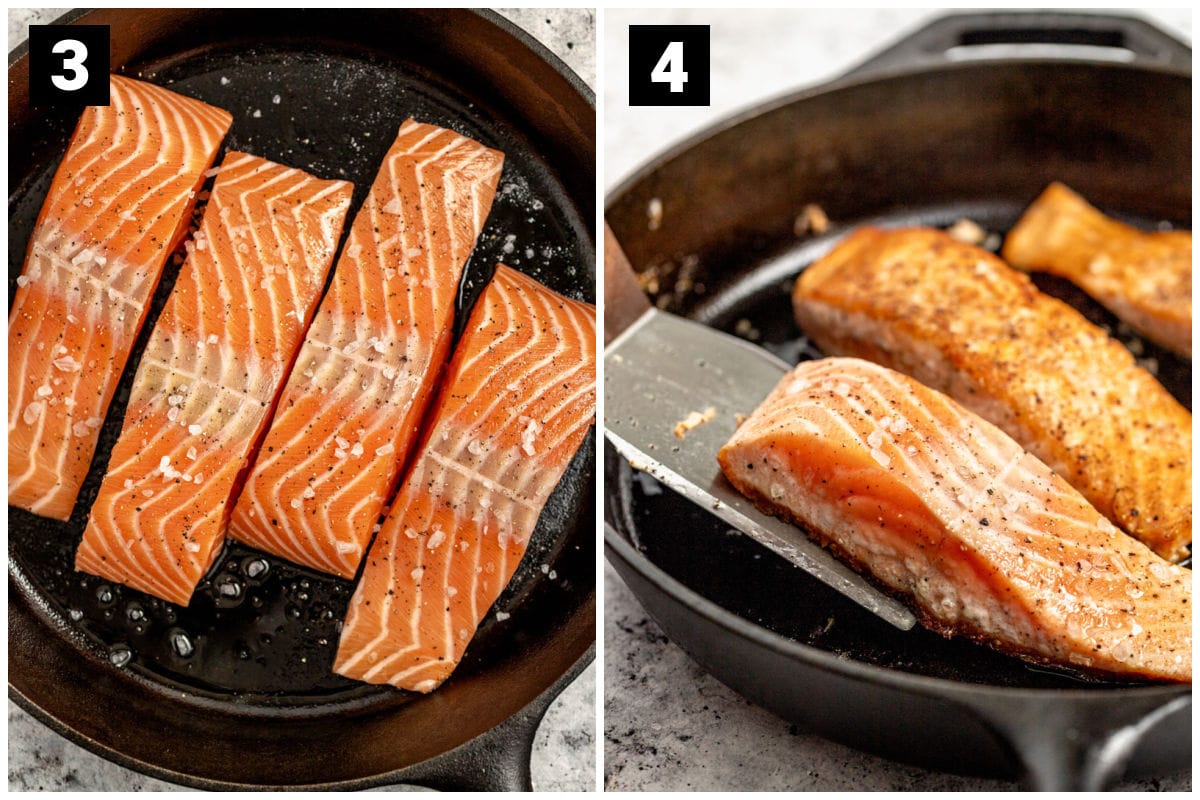
Step 3: Cook First Side
Lay salmon filet skinned-side up in the hot oil. Let cook, undisturbed until browned and crispy along the bottom edge, and the flesh is turning opaque about halfway up the side of the filet, 4 to 6 minutes, depending on the thickness of the fillets. Cooking time will vary depending on the thickness of the salmon.
You always want to cook the flesh side first because it will have the prettiest, most crispy edge. When cooking in the restaurant world this is known as searing presentation side down. The skinned side is not as attractive and won’t be as crispy.
Step 4: Use Carry-Over Heat To Finish Cooking on the Second Side
Flip the salmon over and remove the skillet from the heat. Allow the salmon to remain in the hot skillet to allow the carry-over heat to continue cooking the other side until cooked to the desired temperature, 2 to 3 minutes. An instant-read thermometer inserted in the center of the filet will be 125 degrees F when the fish is cooked to medium doneness.
When is salmon done? The best way to know when the salmon is done is to use a digital thermometer. When the internal temperature registers 125 degrees F, the salmon will be perfectly cooked. Don’t have a thermometer? No problem. Use the tip of your knife to check. The salmon is opaque and easily flakes when it is medium-well to well done.

FAQs and Expert Tips
We serve topped with our Dill Sauce or lemon slices and fresh herbs. My French Lentils with Bacon and Vinaigrette is an all-time favorite pairing with cispy-seared salmon. With it, I like sauteed swiss chard on the side.
If serving for company serve with my Make-Ahead Ginger Green Beans and this easy Brown Rice Salad with cranberries, nuts and citrus.
For a weeknight meal use it to top off Tuscan Kale Caesar or serve with lemon garlic broccoli and steamed potatoes with herbs.
The key to avoiding salmon sticking to your pan is to preheat it very well before adding the salmon. Dry the salmon off before adding on the salt and pepper as moisture can cool down the cooking surface and cause sticking.
The salmon filets should sizzle when you place it in the hot oil. Then do not touch it at all. If you try to flip it too soon it will not release from the pan. Use a very thin fish spatula and make sure to wiggle it between the hot cooking surface and the salmon. If it is stuck, let it sit for a minute longer and try again. If your pan is good and hot it should release without any sticking. Then you’ll know it is time to flip it.
Yes you can. Make sure to remove any scales before seasoning and cooking the fish. Pat salmon dry with a paper towel before cooking for super crispy skin. For the crispiest skin, cook it skin side down first. Or if you do not plan to eat the skin you can leave it on for cooking (start with it skin-side up) and then once it is done cooking, slide the skin off and discard.
What Is The Best Salmon For Sauteeing?
Not long ago, ifyou had asked me what the best kind of salmon for making pan-seared salmon I would have told you to use wild salmon, but that has changed. Due to wild salmon population declines in the Pacific and innovations in aquaculture, my answer is more nuanced today.
Now I would tell you that some farmed salmon is better than wild salmon. The key is to use the Seafood Watch guide provided by the Monterey bay Aquarium to see which is currently recommended.
Currently, I suggest that if you can find a “Best Choice” farmed Atlantic salmon use it because it is more delicious, thicker and fattier, than wild salmon when pan-seared over high heat.
In the wintertime wild salmon, like coho or sockeye is almost always frozen and it is not as buttery or thick as fresh salmon. It can also dry out when cooked at the hot temps needed to get it really crispy. In the summer, Wild King Salmon from Alaska is amazing, thick and fatty and worth seeking out for a special occasion and works very well for this recipe.
Make Ahead
If you want to prep this ahead for the company, my favorite way to do this is searing on side one and then flipping the presentation side up onto a sheet pan lined with parchment. You can do this up to an hour ahead.
Before serving, bake them on the sheet pan at 450 degrees (preferably with convection) until the center of the salmon reaches 125 degrees F when tested with an instant-read meat thermometer. The bottoms won’t be crispy, but it is a great stress-free way of cooking them in the oven for company.
What To Do with Leftover Salmon
Store leftover salmon in an airtight container in the refrigerator for one day.
Leftover salmon is wonderful served cold and flaked over a salad. Sub it in for chicken in my Healthy Cobb Salad or add it on top of French Bistro Brunch Salad.
Use leftover salmon for our Salmon Cakes.
To Reheat: To reheat, place a single filet on a microwave-safe plate. Place a paper towel over it to keep it from splattering. Microwave on 50% power for one minute. Test to see if it is heated through with a thermometer. Continue heating as necessary in 30-second intervals on 50% power until just warmed through. Avoid overheating as the natural oils will cook out of the salmon and it will become dry.
Serving Suggestions: What to serve with pan fried salmon
- Sauce: This thick and creamy Greek Yogurt garlic aioli is great with seafood and can be made ahead. If you like you can make a little garlic butter to drizzle over the salmon filets. After you sear salmon, melt a couple pats of unsalted butter in the skillet. Then quickly sizzle two cloves of chopped garlic in it. Spoon it over the salmon just before the garlic starts to brown. Make it a lemon butter sauce by finishing it with a squeeze of fresh lemon juice
- Green Veggies: Some favorites to pair with seafood are this Lemon Broccoli and this Grilled Asparagus with Lemon. In summertime try our Sauteed Zucchini.
- Salad: We love a classic salmon caesar. Try our restaurant quality homemade Caesar dressing. This Kale Salad with Orange (and crunchy breadcrumbs) would be yummy topped with your gorgeously browned and tender salmon filets! This Cucumber Tomato Salad goes with everything!
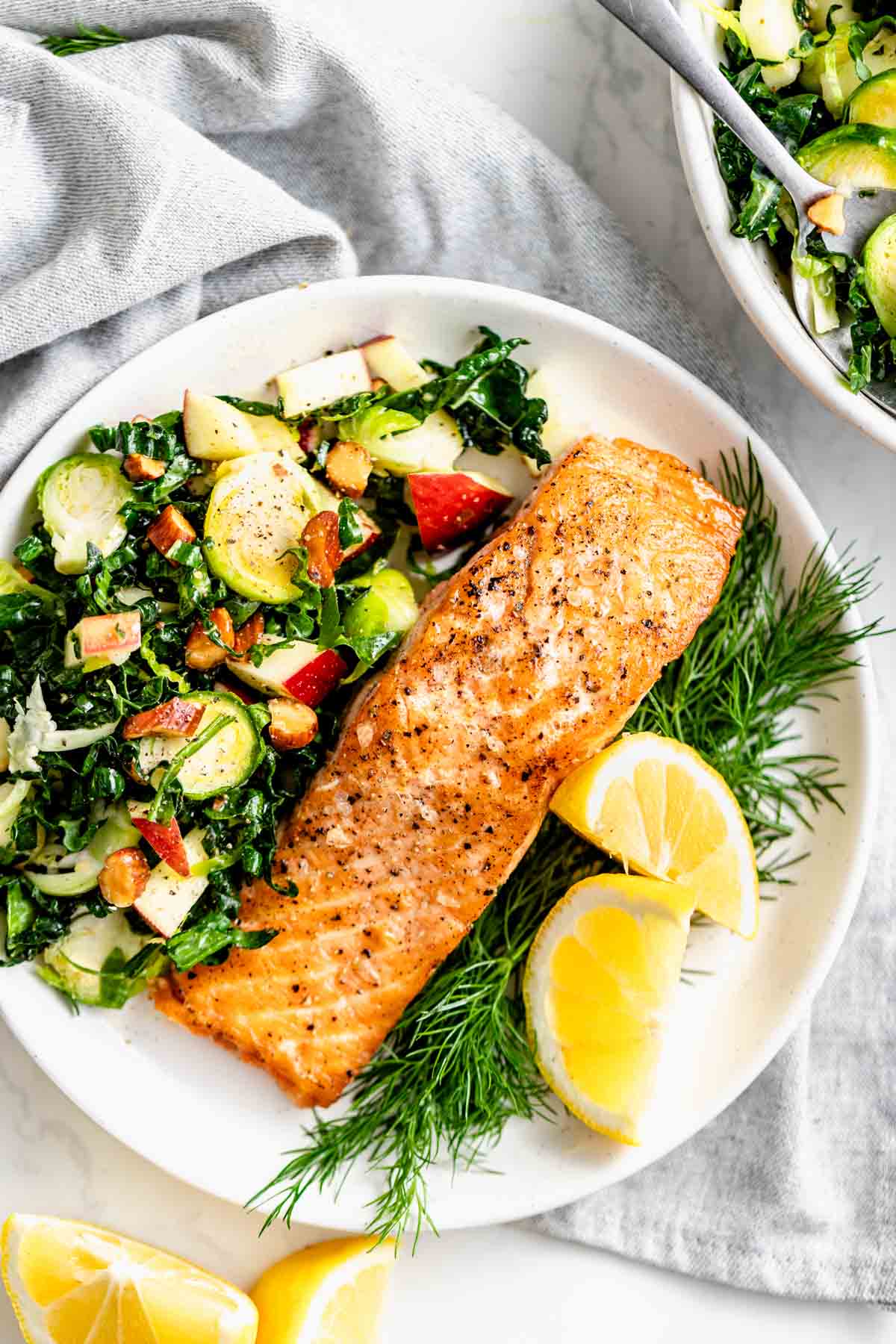
More Restaurant-Style Meals at Home
Thanks so much for reading! If you are new here, you may want to sign up for my email newsletter to get a free weekly menu plan and the latest recipes right to your inbox. If you make this recipe, please come back and leave a star rating and review. I would love to hear what you thought!
Happy Cooking! ~Katie
Print
Crispy Pan Seared Salmon
- Total Time: 15 mins
- Yield: 4 servings 1x
Description
This 15 minute recipe for Crispy Pan Seared Salmon is perfectly browned and crisp on the outside and tender and just cooked on the inside. It only requires a few basic ingredients but yields restaurant-quality salmon every time!
Ingredients
- 2 teaspoons high heat cooking oil such as grapeseed or avocado
- 3/4 to 1 teaspoon coarse kosher salt *see note
- 1/4 teaspoon ground black pepper
- 1 1/2 pounds center-cut boneless salmon filet, skin removed *See note
Instructions
- Heat oil in a large cast-iron skillet over medium-high heat.
- Meanwhile, sprinkle salt and pepper all over the salmon.
- Lay salmon filet skinned-side up in the hot oil. Let cook, undisturbed until browned and crispy along the bottom edge, and the flesh is turning opaque about halfway up the side of the filet, 4 to 6 minutes, depending on thickness.
- Flip salmon over and remove the skillet from heat. Allow the salmon to remain in hot skillet to allow the carry-over heat to continue cooking the other side until cooked to the desired temperature, 2 to 3 minutes. An instant-read thermometer inserted in the center of the filet will be 125 degrees when the fish is cooked to medium doneness.
Notes
Ingredient Note
If using Diamond Kosher salt you can use up to 1 teaspoon to season the fish. For Morton use only ½ to ¾ teaspoon as it is higher in sodium.
To Remove Skin
To remove the salmon skin, place the salmon filet skin side down on the cutting board. Slide a Chef’s knife between the flesh and the skin but not through the skin. You’ll have to hold your knife almost perpendicular to the cutting board. With gentle sawing motion and downward pressure, grasp the skin with your non-dominant hand and pull firmly against the pressure of the knife. Work your way to the far end of the filet.
- Prep Time: 5 mins
- Cook Time: 8 mins
- Category: Main Course
- Method: Stove Top
- Cuisine: American
Nutrition
- Serving Size: 6 ounces
- Calories: 260
- Sugar: 0 g
- Fat: 17 g
- Saturated Fat: 4 g
- Carbohydrates: 0 g
- Fiber: 0 g
- Protein: 23 g




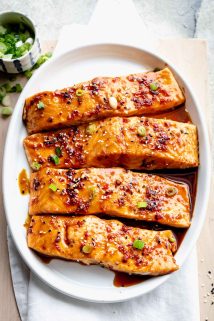
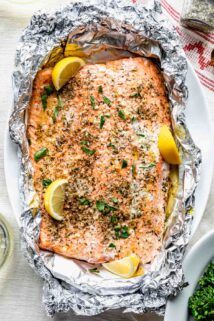
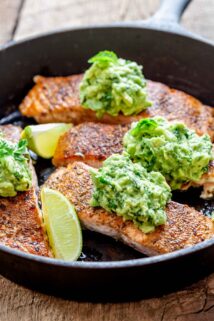
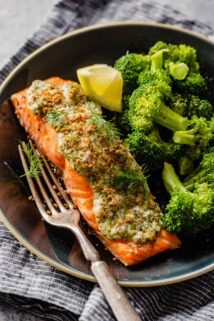


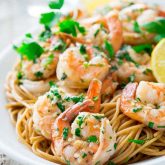



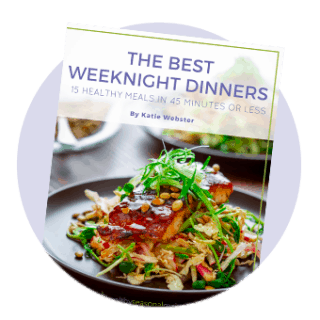

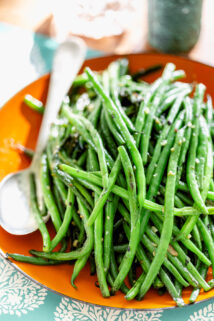
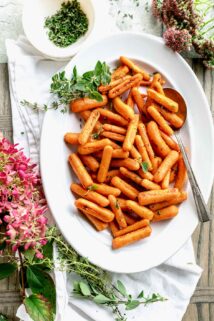
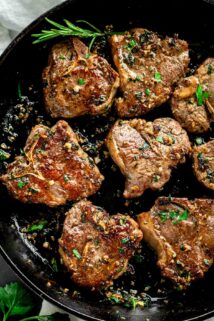
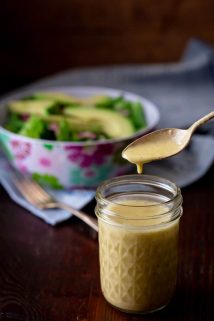
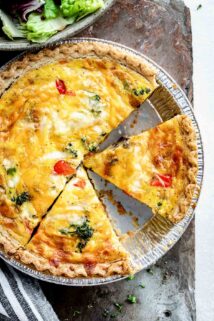
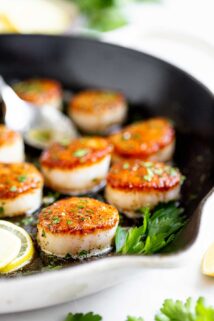
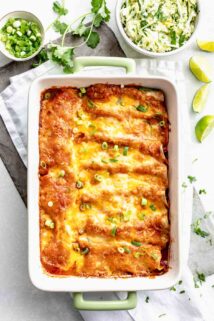
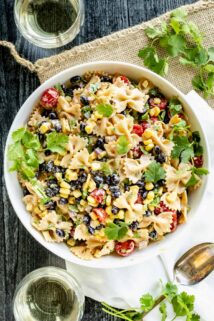

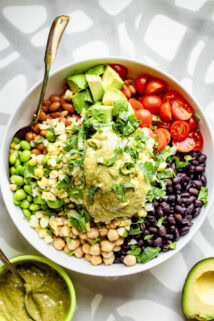
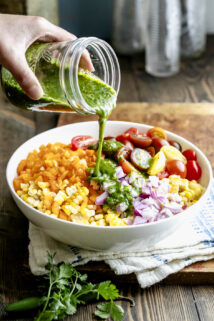
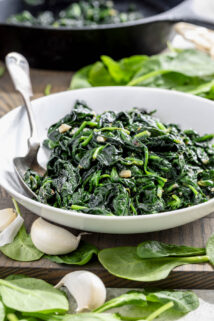
This looks great! Can’t wait to try it this weekend 🙂
Thanks Claire. Please come back to let us know how it comes out!
This recipe is a winner! I don’t usually have good luck with salmon fillets. This was quick, easy and delicious!! Thanks for this recipe. My picky husband loved it.
I couldn’t resist commenting again because this Seared Salmon recipe is a real gem. This second time was just as fantastic as the first. The salmon’s sear is perfection, and the flavors are a culinary delight. This recipe is a definite winner, and it’s quickly becoming a regular on my menu. Thank you for sharing this masterpiece!
Thanks so much Kate!
Excellent procedure! Simple, fast and perfect outcome. Thanks for sharing!
I am glad you like this one!